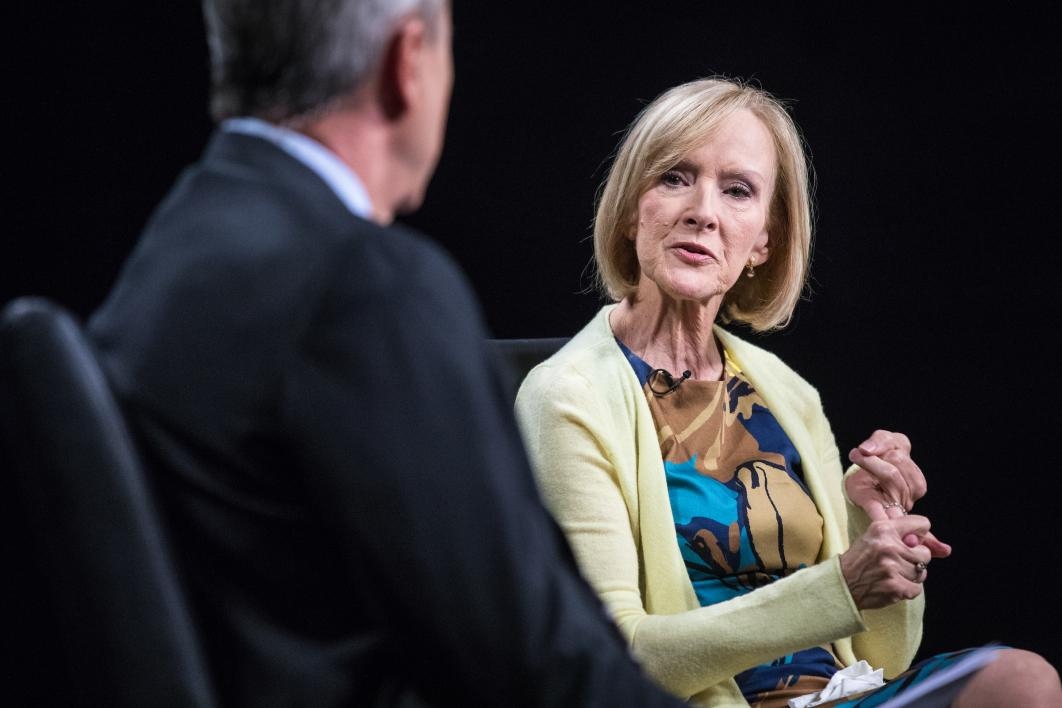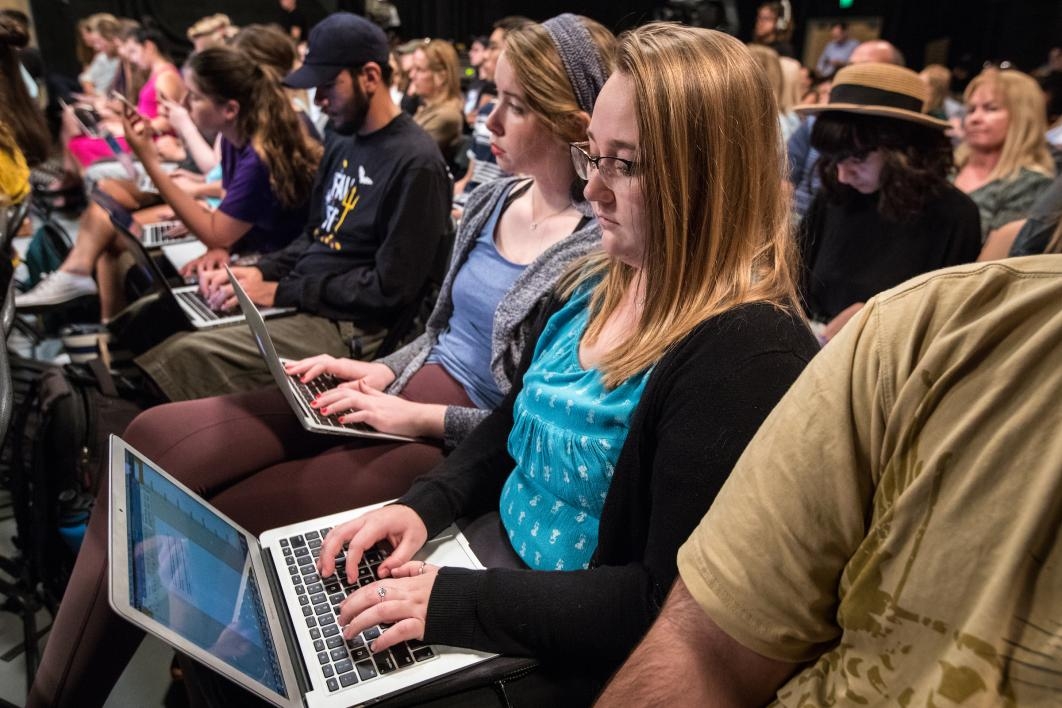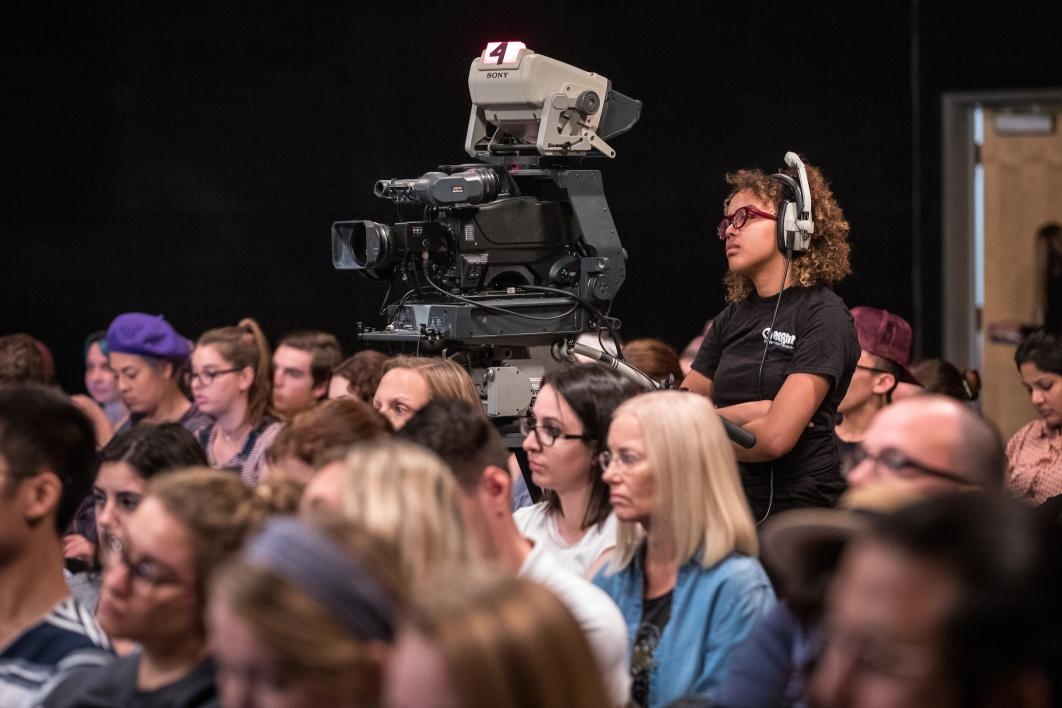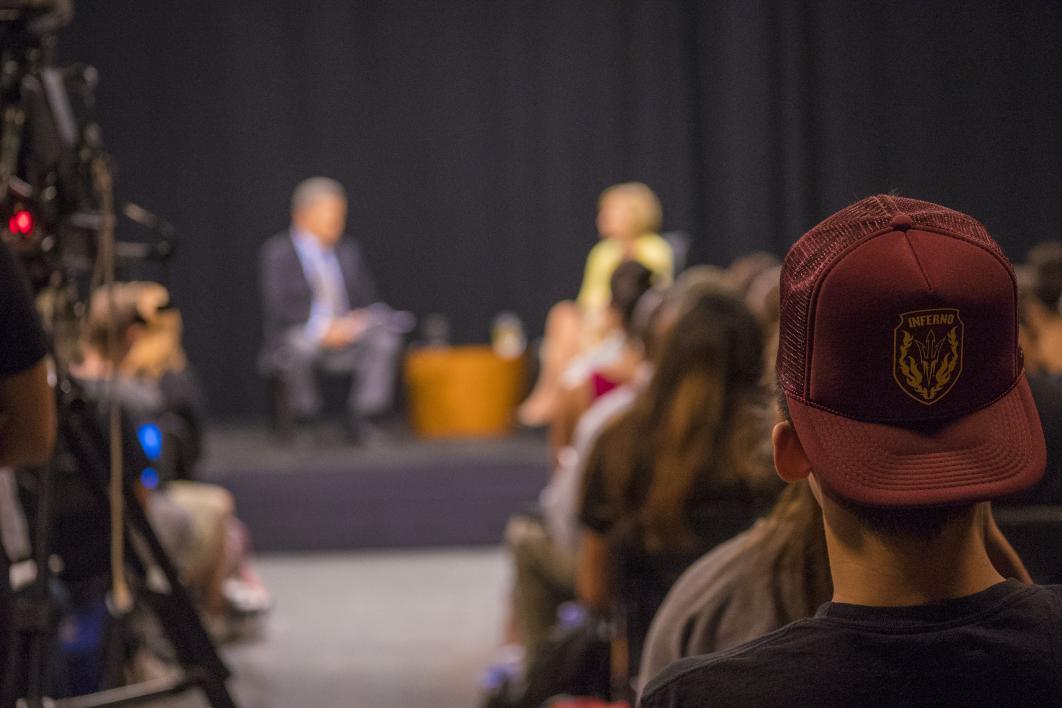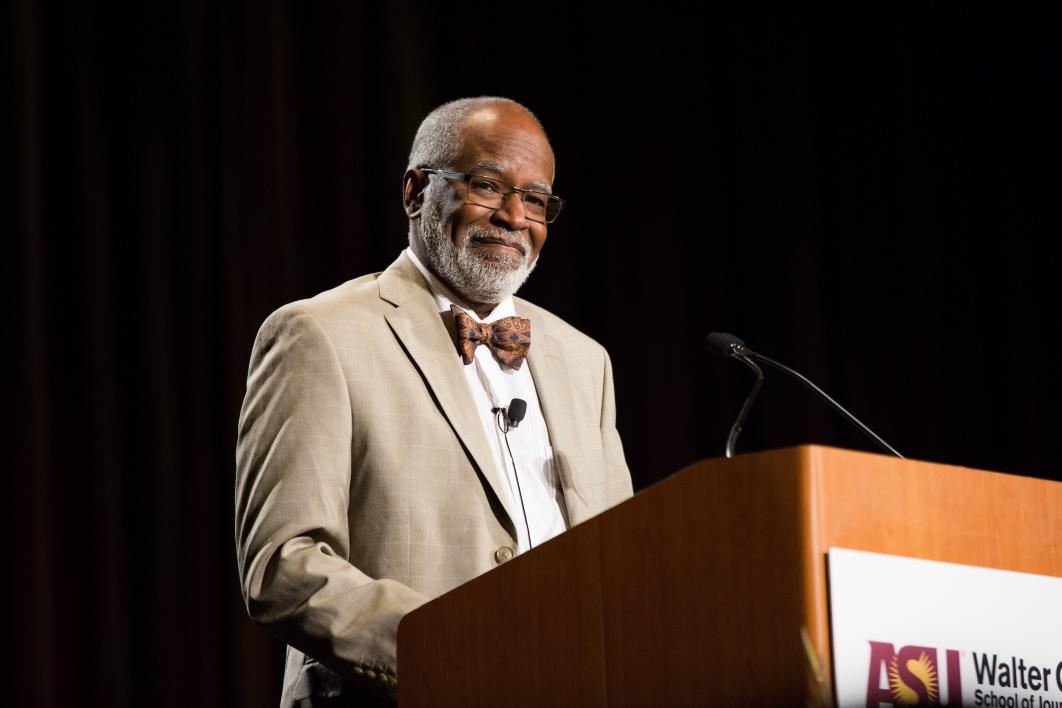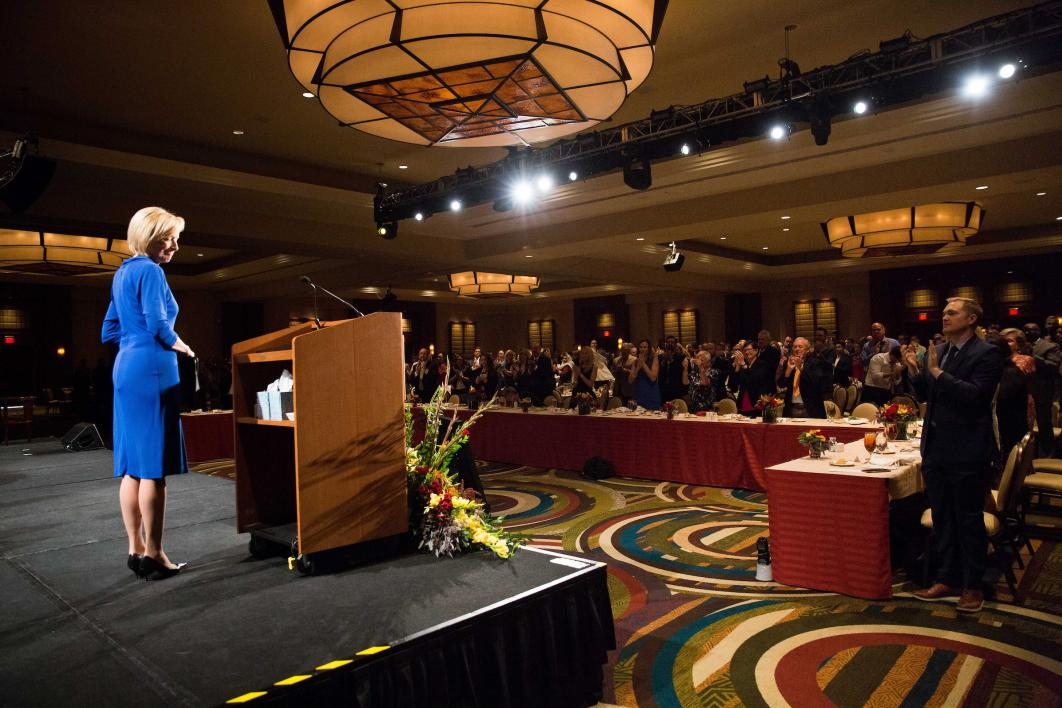Judy Woodruff at ASU: Journalists are not the 'enemy of the American people'
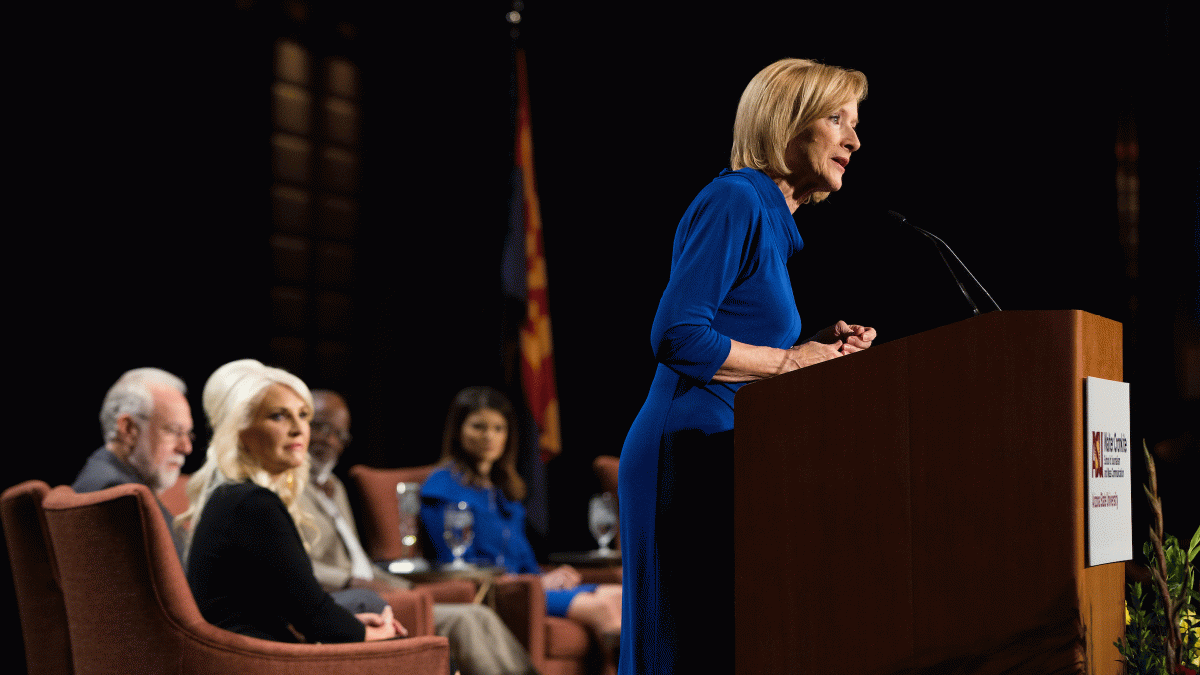
Judy Woodruff and the late Gwen Ifill, the award-winning co-anchors and managing editors of the “PBS NewsHour,” were awarded the 2017 Walter Cronkite Award for Excellence in Journalism by Arizona State University on Thursday.
In an era with a president who built a campaign and an administration by calling most news fake and most journalists enemies of the American people, Woodruff told the audience, “I am not an enemy of the American people. I love this country.”
Woodruff, the anchor and managing editor of the “PBS NewsHour,” received the 34th annual award, given by the Walter Cronkite School of Journalism and Mass Communication, at a luncheon ceremony in downtown Phoenix. Roberto Ifill accepted the award on behalf of his sister Ifill, who served with Woodruff as co-anchor and co-managing editor from 2013 until her death from cancer in November.
Woodruff reflected on how the news business is in flux from a changing business and technology landscape, and not necessarily for the better.
“Newspapers have been closing down, reporters by the hundreds and even thousands have been laid off,” she said. “Too many state capitals, city halls, boards of education are going uncovered around this country today because there simply aren’t enough reporters to cover them. Once Americans found they could get their news for free, they didn’t need to buy a newspaper. And with newspapers for so long having set the pace reporting in communities across the nation, that has been a blow to the public’s ability to know what’s going on.”
Technology, which has taken so many jobs away, has also provided a new source of news, she said.
“Channels by the hundreds, an explosion of online sites, news in our Facebook feeds, whenever we check Google, Yahoo, there’s news everywhere,” Woodruff said. “It’s good news, it’s reported news, it’s sloppy news, it’s credible news, it’s made-up news, and everything in between.”
Excellent reporting still can happen. Woodruff talked about the Weinstein scandal, which was broken by the New York Times and the New Yorker magazine, and the exposure of drug lobbyists worsening the opioid crisis by encouraging Congress to hobble the DEA by CBS 60 Minutes and the Washington Post.
“Mainstream journalist organizations, which took months and months of work to nail it down,” Woodruff said in praise of both investigations. “That’s the mainstream media working for you.”
Social media is not going to replace professional journalism, she said.
“Now the news is coming to us from every conceivable source, from places that never thought they were going to be in the news, like Facebook and Twitter,” Woodruff said. “We thought they were there to do something else. We are watching the transformation as these organizations try to understand what their role is. They’ve made some big mistakes, and they’re trying to figure out how to fix that.”
As part of Woodruff’s two-day visit to ASU, she reported for the NewsHour from the Cronkite School. She sat down with Cronkite faculty member Jacquee Petchel and students Claire Caulfield and Jasmine Spearing-Bowen to discuss a major national investigation into water quality as part of the Carnegie-Knight News21 program at the Cronkite School. She also interviewed U.S. Rep. Ruben Gallego as part of an ongoing NewsHour series on the future of the Democratic Party.
Woodruff’s visit included an appearance on the public affairs program “Arizona Horizon” on Arizona PBS, which is operated by the Cronkite School. Woodruff fielded questions from host Ted Simons on a variety of topics ranging from her career and friendship with Ifill, to her memories of Walter Cronkite. After the taping, Woodruff, Simons and “PBS NewsHour” Executive Producer Sara Just took questions from Cronkite students in the audience. They discussed the convergence of media, fake news and the importance of journalism, among other topics.
The job of journalism is to be the public’s eyes and ears, Woodruff said Thursday at the awards luncheon. Journalists are needed to find answers day after day.
“People often ask me if the news business is going to survive,” she said. “Yes, it absolutely is because we will always need to know what’s going on around us, what opportunity and what peril out there lies around the corner, what our fellow human beings are up to.”
The Cronkite School contributed to this report. Top photo: Judy Woodruff addresses the audience after accepting the 34th annual Walter Cronkite Award for Excellence in Journalism at the Sheraton Grand Phoenix hotel on Thursday afternoon. The 2017 awardees were both Judy Woodruff and the late Gwen Ifill, award-winning anchors of the “PBS NewsHour." Photo by Deanna Dent/ASU Now
More Law, journalism and politics
Can elections results be counted quickly yet reliably?
Election results that are released as quickly as the public demands but are reliable enough to earn wide acceptance may not always be possible.At least that's what a bipartisan panel of elections…
Spring break trip to Hawaiʻi provides insight into Indigenous law
A group of Arizona State University law students spent a week in Hawaiʻi for spring break. And while they did take in some of the sites, sounds and tastes of the tropical destination, the trip…

LA journalists and officials gather to connect and salute fire coverage
Recognition of Los Angeles-area media coverage of the region’s January wildfires was the primary message as hundreds gathered at ASU California Center Broadway for an annual convening of journalists…


